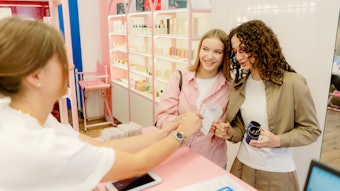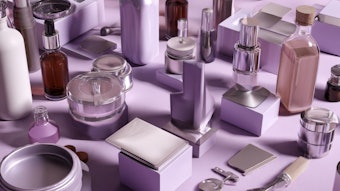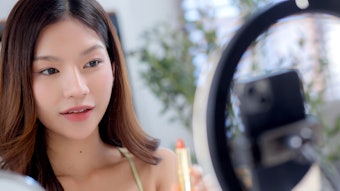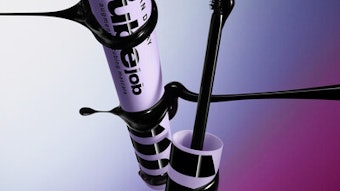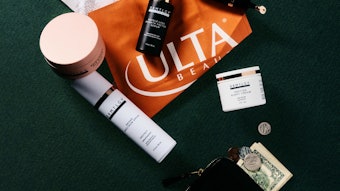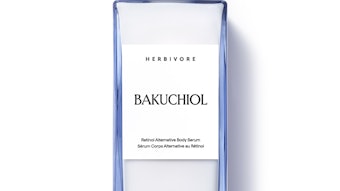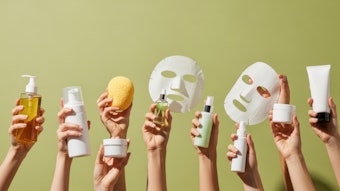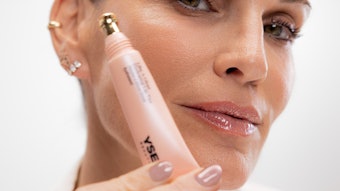GCI: Consumers often get confused by the terms “natural” and “organic,” which can be found on the labels of personal care products and color cosmetics. What exactly do these terms mean, and which category or categories does your company fall under?
Mike Indursky, Chief Marketing & Strategic Officer, Burt’s Bees Inc, www.burtsbees.com: Before you can even decide if a product is organic, you have to first determine if it is natural. The issue is that because there are no regulations on organic personal care, a product labeled organic can contain anywhere from 100% organic ingredients to having minute levels of organic ingredients. Anything less than 100% organic can and often does contain synthetic ingredients, including those that are potentially harmful, such as parabens and phthalates. That is precisely why there needs to be a natural standard to first determine if the product is natural. Only then should it be determined if it as also organic and to what extent. When it comes to determining if a product is natural, you have to look at both the ingredients and the processes used in working with the ingredients. So, Burt’s Bees defines natural as ingredients that come from a purposeful, renewable source found in nature (flora, fauna, mineral) and processes that are minimal and don’t use synthetic/harsh chemicals, or otherwise dilute purity. However, just as with organic, there are no regulations for what a natural personal care product is and isn’t. In the interest of helping consumers navigate this confusing landscape, we are working with the Natural Products Association and our competitors to develop The Natural Standard, one clear definition for natural, and a corresponding seal that consumers can recognize when seeking truly natural personal care products to maximize their well-being. The seal will be unveiled in spring 2008. The Natural Standard broadly requires that a natural product be made with at least 95% truly natural ingredients; contain no ingredients with any suspected human health risk [and] use no processes that significantly/adversely alter the purity/effect of the natural ingredient. A non-natural ingredient can only be used if there is no viable natural alternative available, and there are absolutely no suspected human health risks. For example, parabens are commonly used synthetic preservatives that have been linked to endocrine disruption. There are natural and effective alternatives to parabens, so of course we use them, as should any product labeled “natural.” In our case, we use sugar and milk enzymes, which work just as well without any potentially harmful side effects. On the other hand, there is a synthetic ingredient in shampoos called a quat, and it’s very effective at creating a positive charge in the hair, which increases body and manageability. Unfortunately, there are no natural alternatives to this ingredient available, but there is also no human health risk associated with it. Still, should one become commercially viable, we’d use it, because a natural product should be just that—fully natural.
Carina Menzies, Owner, Everyday Minerals, www.everydayminerals.com: Let’s get the technical aspect of this question aside first. We leave the designations to the USDA [United States Department of Agriculture]. As you know, when you’re dealing with mineral makeup and USDA regulations, you’ll see that organic certification isn’t something that is really applicable. That said, we do consider ourselves holistically an all-natural company and strive to use organically certified components whenever possible. For example, we founded the brand to give a better way for our friends around the world to have fun with personal care products. Accordingly, with our existing [and] new [products], and products in development, we integrate organically certified components and we strive for 100% integration. But we don’t just push organic and all-natural because it is a catchphrase. It needs to fit with our holistic, all-natural view of our product line.
Angella Green, Brand Manager, JASON Natural Products, www.jason-natural.com: JASON deems the majority of our products as natural. However, we do have a few beauty oils like jojoba, aloe vera and tea tree that are 95-100% organic. The Earth’s Best Organic Baby Body Care by JASON is also 70% organic.
Kayla Fioravanti, R.A., Chief Formulator, Registered Aromatherapist and Founder, von Natur, www.vonnatur.com: We classify our products as naturally derived. The majority of the ingredients used in our products can be plucked right out of nature. A very small handful of ingredients are naturally derived in that one or more things occurring in nature are processed in a lab to create a new ingredient. Any natural company uses a handful of these ingredients, unless they only sell massage oils and bath salts. All formulations of shower gel, shampoo (even castile) and lotions fall into the naturally derived category. Currently, our labels give the organic content of each product. We are waiting for our documents from QAI [Quality Assurance international], Oregon Tilth and Ecocert as we speak. We have adhered to and followed all organic processes for many years.
Nick Koutsianas, Founder, APIVITA S.A., www.apivita.gr: Natural and organic products are now the fastest growing category of cosmetics industry [at an] annual rate of development of 17%, with main areas of distribution in North America (65%) and Europe (28%). I think it’s important to mention that the trend of buying organic or natural cosmetics in U.S., [by] 2010, is expected to reach 11.8USD per capita. Apart from that, there is also a new concept in the market—the “without” trend. Consumers are buying products with the criteria of what they don’t contain in order to avoid ambiguous substances that might have undesirable side effects for their health in the long run. People are frightened with what chemicals can cause to their health, and to a great extent, they are right. The difference is that they are now better informed and require a higher standard of quality in their lives…. Our products are natural—in the sense that their effectiveness is based on natural, plant extracts and bee products. Our formulas contain the maximum quantity of plant ingredients we can get in a product, as we want to ensure that results are delivered to the consumer. There are no animal substances, and our products are not tested on animals. We also refrain from using parabens, silicones and propylene glycol. We include as many organic extracts in our products as possible, and we do use organically-grown plants. We already have certified organic products on offer (certified by ICEA AIAB), and we will offer more organic products in the future.
